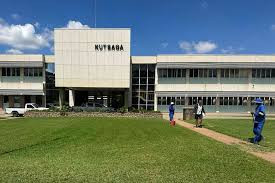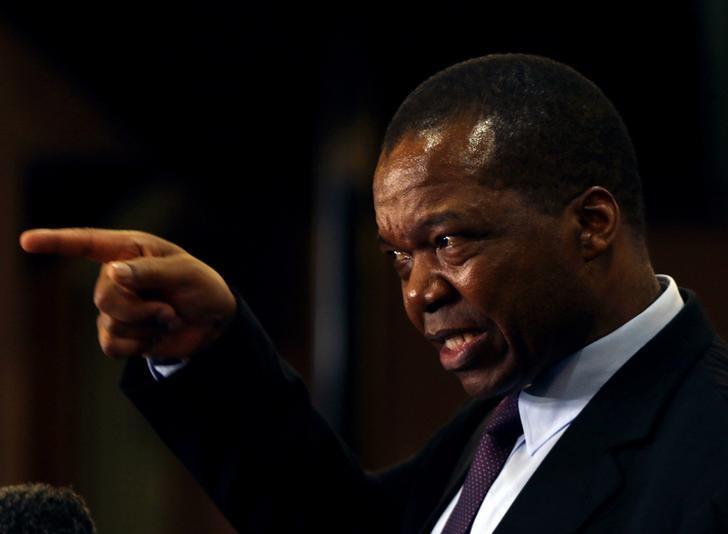RBZ announces new measures to stabilise prices, exchange rate
THE Reserve Bank of Zimbabwe (RBZ) will from today start selling foreign currency on the interbank market through commercial banks, with the foreign currency auctions now limited to US$5 million a week and transactions of between $1 500 and US$50 000, largely in a price discovery process.
This comes after Finance and Economic Development Minister Professor Mthuli Ncube late last month announced a set of policy measures to upgrade the whole foreign currency trading and pricing system, including minimising the auctions as a method for importers to access foreign currency so the burden moves to banks and direct earnings.
As part of the reforms, the bank’s Monetary Policy Committee (MPC) met yesterday and came up with fresh interventions.
RBZ governor Dr John Mangudya said the new measures were calculated to ensure that the interbank forex market became the primary source for foreign exchange needs in the economy. This overtakes the auctions that have carried the burden for just under three years since the middle of 2020.
In taking measures to address issues affecting the economy, the MPC noted that the prevailing volatility in the exchange rate emanated from both supply-side and demand-side factors.
Dr Mangudya said the supply-side factors reflected the transitory reduction in foreign currency inflows, while the demand factors reflected the sustained value-preservation demand for foreign currency in the economy.
The Zimbabwe dollar fell roughly 42,5 percent to a weighted average $3 673.7718 against the United States (US) dollar on the RBZ weekly foreign currency auction yesterday.
The auctions will largely be a mechanism for price discovery but will also help cope with some of the smaller demands. Yesterday’s auction saw the highest rate on the successful allotments for both the main auction and the SME auction at $4 100. The lowest successful rate was $3 555 on the main auction and $3 500 on the SME auction.
There were just 38 allotted bids for a total of US$4,158 million on the main auction and 82 successful bids for almost US$830 000 on the SME auction. The very small number of successful bidders means that most importers now need to use their own earnings or interbank purchases, but with the exchange rate set by the auctions.
“Thus, in order to ensure that the interbank forex market is self-financing the 90-day liquidation requirement on export proceeds will fall away,” said Dr Mangudya.
“The current interbank maximum trading limits shall be reviewed upwards from US$100 000 to US$500 000, consistent with the current auction limits,” said Dr Mangudya.
These far larger and wider limits for single transactions on the interbank market will dwarf the auctions where the main and SME auctions are to be merged, with just US$5 million a week as ordered by Minister Ncube recently on offer, and now with the MPC setting bid limits of a minimum of US$1 500 and a maximum of US$50 000.
Trading margins charged by banks on foreign exchange transactions will be aligned with international best practices, Dr Mangudya said.
To address the demand-side factors, the MPC resolved to increase the bank policy rate from 140 percent to 150 percent per annum in response to the recent increase in inflation.
This makes borrowing to play foreign currency markets more expensive and helps curb speculation.
The bank policy rate determines the minimum lending rates charged by commercial banks.
The MPC also resolved to increase the Medium-term Bank Accommodation interest rate from 70 to 75 percent per annum and increase the statutory reserve requirements on local currency demand and call deposits from 10 to 15 percent, while maintaining savings and time deposit requirements at 5 percent.
“The bank remains committed to continuing with the current tight monetary policy to restore and sustain the exchange rate and inflation stability.
“The issue of gold-backed digital tokens to augment physical gold coins as a value preservation instrument has gone a long way in mopping up excess liquidity from the market,” said Dr Mangudya.
To date, the central bank chief said, the bank has sold $31,8 billion of gold coins and $35,2 billion worth of gold-backed digital tokens.
Digital tokens can soon be used for transactions in the second phase, which is projected to start this month as part of stabilisation measures.
On its part, the Finance Ministry, last month increased the retention on domestic foreign currency sales to 100 percent to allow domestic businesses more foreign currency from the market and drive growth in US dollar deposits in the banking system.
The ministry also adopted to ensure that all external liabilities are funded transparently through the national budget. It is a legal requirement that all State debt, along with State service pensions and the salaries of judges, MPs and the President are budgeted at the top of the budget, before money is voted to run the Government.
Import duty and taxes on 10 basic commodities were lifted to clear restrictions on the importation of basic goods, so as to promote competition thereby resulting in a reduction in prices.
Minister Ncube also said the Treasury would promote the use of domestic currency by Government agencies, which is expected to further increase the demand for the local currency.-herald












